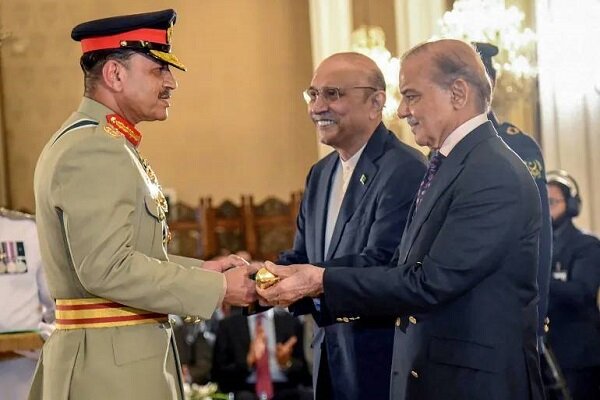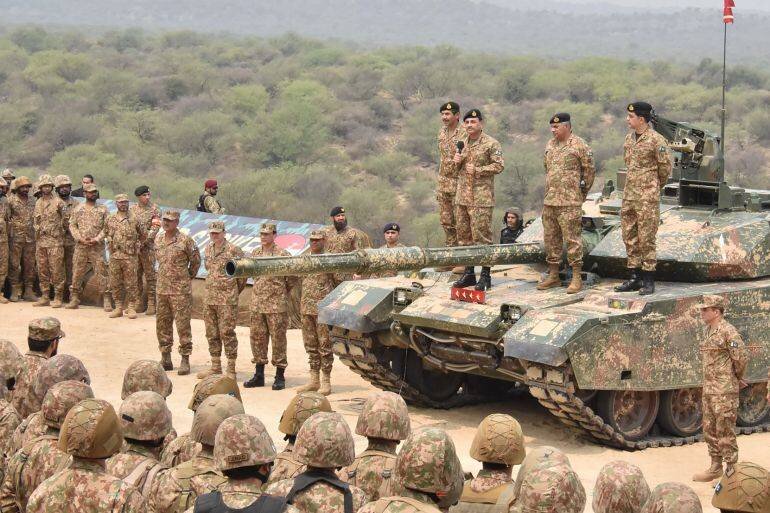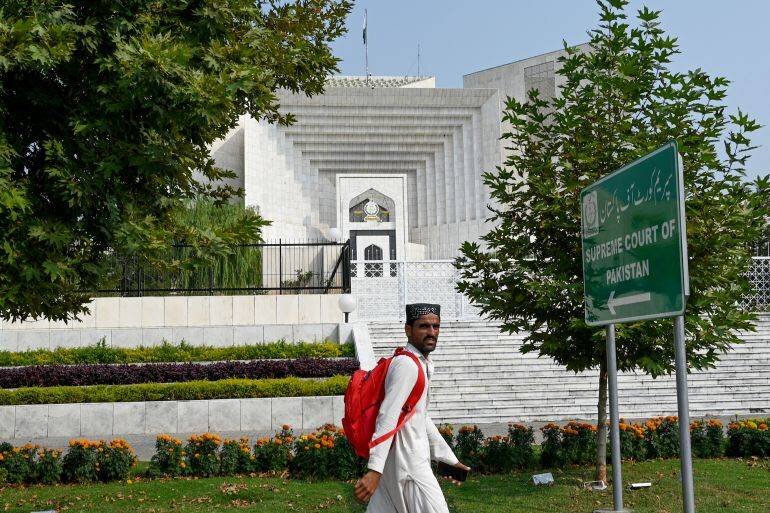New Amendment to Pakistan’s Constitution: How Will Military Structure Change?

According to the English section of webangah News Agency, citing Mehr News Agency and Al Jazeera, Pakistan is entering a critical political phase following Parliament’s approval of the 27th amendment to its Constitution. This amendment has triggered intense controversy domestically and internationally due to unprecedented changes it brings to the military and judicial systems’ structures.
The most notable aspect of this amendment grants lifetime judicial immunity to President Asif Ali Zardari alongside constitutional immunity for Field Marshal Asim Munir, Chief of Army Staff-an action widely interpreted as an effort to legally protect ruling elites and military figures from any future prosecution.
Previously, the rank of Field Marshal was purely honorary with no additional powers or privileges. The proposed changes constitutionally formalize this rank as an official position within Pakistan’s legal framework.
This legislation extends beyond just the president and army chief; it includes other top military commanders who now enjoy full protection from criminal proceedings. The amendment awards five-star officers lifetime immunity while allowing them to retain their ranks, privileges, and remain in uniform indefinitely.
restructuring Military Command
The military command overhaul under the 27th amendment has been described as “the most meaningful restructuring since Pakistan’s founding.” Key elements include:
- Creation of a new Chief of Defense forces post endowed with supreme executive authority.
- Establishment of the National Strategic Command, responsible for managing nuclear arsenals and strategic weapons.
- Extension of air force and navy authorities under this new Chief Defence Forces command-implicitly subordinated under army leadership.
- abolition of the Chairman Joint Chiefs of Staff Committee position.
- The formation of a commander for National Strategic Command who will also oversee nuclear operations alongside other responsibilities.
- This commander must be selected exclusively from army ranks in consultation with the army chief, who concurrently serves as Chief Defence Forces commander according to this amendment.
Within Pakistani circles, these developments are seen as cementing land forces’ dominance, granting them central control over national defense at what critics say is air force and navy expense.
The New Judiciary and Constitutional Court
The amendment introduces fundamental judicial restructuring including:
- The creation of an self-reliant Constitutional Court tasked solely with adjudicating constitutional cases.
- A reduction in supreme Court powers-especially oversight over executive branches including both government and armed forces.
- Parallel reforms in subordinate court procedures related to court functions.
- The Federal Constitutional Court will be led by a special presidency body. Besides Islamabad (the federal capital), it will comprise equal numbers of judges representing each one of pakistan’s four provinces.
- This court will settle disputes between federal government entities or between provincial governments themselves.
- An expanded presidential authority allows transferring judges between high courts upon recommendations by Pakistan’s Judicial Commission-a body that advises on senior judicial appointments. Previously such transfers required judge consent along with consultation involving Supreme court Chief Justice plus respective high Courts’ chiefs.
Concerns Over Expanding Military Influence
The constitutional reform plunges Pakistan amid domestic discord influenced by mounting international criticism into a heated political-legal battle.
Human rights organizations issued immediate warnings that these changes pave way for consolidating military dominance over key state institutions undermining separation-of-powers – foundational principle underpinning all democratic systems.
A report by Juras News described this move as an example showing how “constitutional engineering” can justify covert military control under democratic facades while cautioning that blanket immunities risk stripping constitutions from accountability tools.
The establishment itself stirred widespread debate among legal experts in Pakistan-with retired judges plus scholars arguing such steps weaken Supreme Courts’ role thereby destabilizing checks-and-balances.
Legal advisor Reema Umar cautioned that executive-controlled judge appointments create conflicts compromising impartiality potentially converting courts into masks safeguarding decisions favoring high-ranking officials.
Supreme Court Associate Justice Mansoor Ali shah called this new tribunal “a political instrument aimed at weakening judiciary” defining it explicitly “judicial manipulation.”
Tensions escalated further after two senior Supreme Court justices resigned protesting what they termed a systematic takeover dismantling judicial independence through constitutional distortion.
Main opposition parties including PTI staged boycotts against voting on these amendments labeling them unconstitutional erosions while religious parties jamaat-e-Islami along with Jamiat Ulema-e-Islam outright rejected them.
Prominent Islamic scholars such as Mufti Muhammad Taqi Usmani voiced serious reservations particularly on extensive immunities granted fearing incompatibility with Sharia aims enforcing equality before law against undue privilege reserved only for select officials rather than ordinary citizens.- stressing any moves limiting oversight must undergo rigorous scrutiny given core Islamic jurisprudence principles mandate universal rule-of-law applies without exception.
Distinguished jurists like Raza Hussain from Lahore added lifetime impunity essentially grants special rights unelected officers denied even elected civilian leaders further exacerbating governance imbalance
Government Justifications
Faced with overwhelming criticism , Prime Minister Shehbaz sharif - led coalition insisted changes do not threaten democracy but constitute necessary modernization boosting functioning efficiency mainly targeting armed forces alongside judiciary .
Muslim League leader Senator Rana Sanaullah dismissed controversy labeling it baseless storm , while Defense Minister khawaja Asif explained article 243 revision complies with evolving defense requirements.
Government rationalized launching Constitutional Court justified amid steep rising appeals burden clogging Supreme Courts delaying civil/criminal case resolutions .
Interior Advisor Talal Chaudhry strongly defended parliament ‘ s right amending constitution describing judge resignations politically motivated saying modifications (26 & 27) ensured improved political stability adding future reforms pending consultations remains possible .

Public And Media Divisions
Pakistani social media opinion divides sharply : some welcome reforms reinforcing discipline , strengthening defense capabilities ; others warn measures pave institutionalizing permanent army interference politics . International newspapers describe these shifts potentially reshaping contry ‘s governance landscape decades ahead whereas South asian Democracy Center warns redesigned judiciary jeopardizes ability holding civilian +military leaders accountable especially given sweeping blanket immunities granted .
While government emphasizes necessity behind reforms arguing their merits , dissent continues robust meanwhile Amendment No. 27 stands pivotal marker shaping ongoing national discourse addressing balance cracks among powerful bodies highlighting evolving nature civil-military relations .
Diverse interpretations cloud actual implementation framing next crucial chapter determining institutional checks-balance framework influencing domestic policy trajectory coming years.





